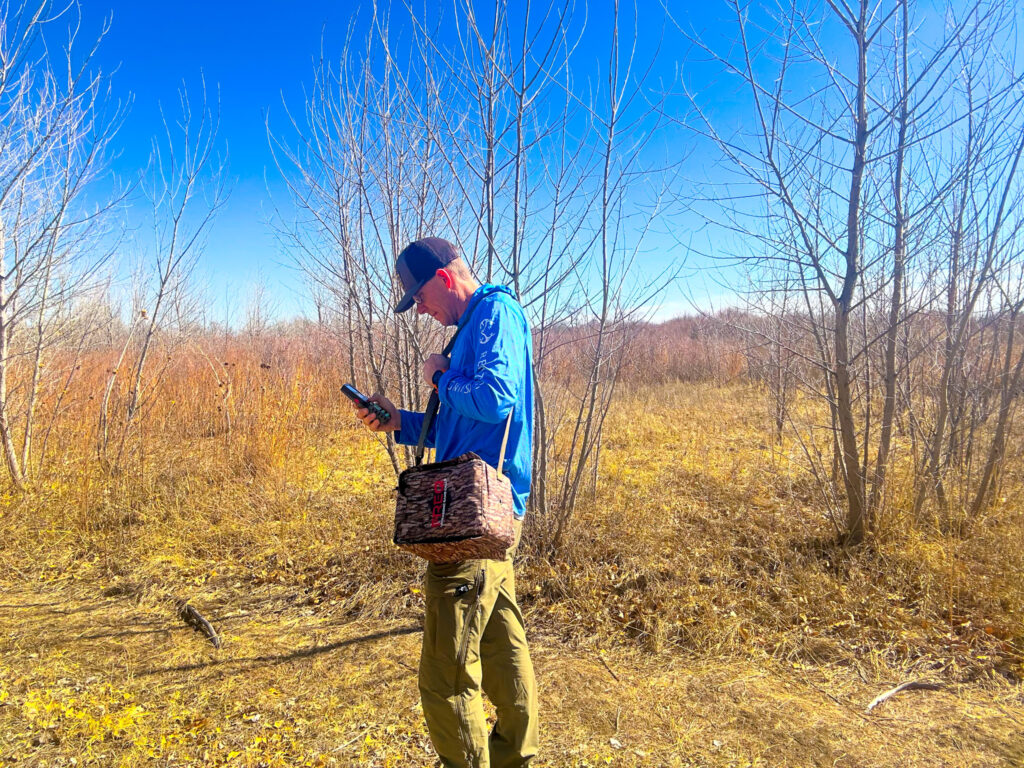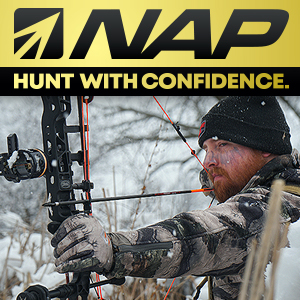Sporting a pair of speakers, FREQ’s Ultrasonic Game Call produces low- and high-frequency sounds that guarantee even the wariest of critters will come running.
by Jace Bauserman
As an avid coyote hunter, there’s nothing like the thrill of calling fur and teeth close. Every fall and winter, I embark on countless adventures across the plains and farm country near my Colorado home, armed with an e-caller, shooting sticks, and my trusted coyote rifle.
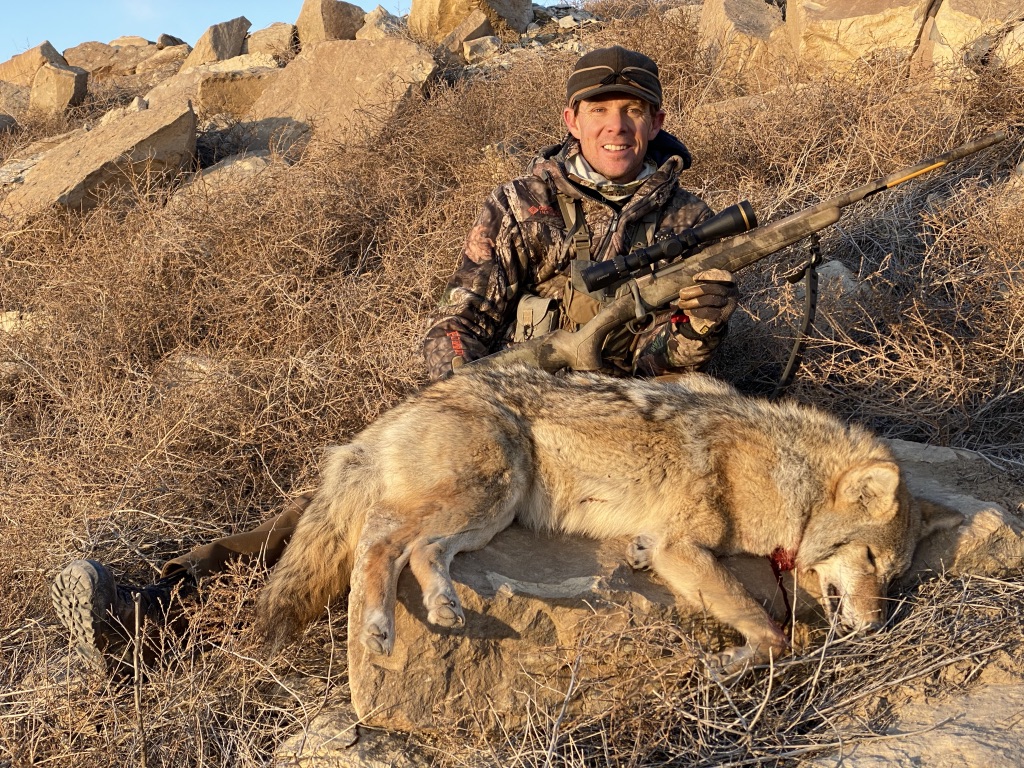
Over the years, I’ve had the opportunity to test various e-callers. Some have impressed me with their excellent sound quality, while others have left much to be desired. I’ve encountered units that produced scratchy, static-like sounds and others that could only manage shallow and hollow howls. Some were too heavy for practical use, and others required technical expertise akin to NASA standards.
Still, I have a trio of go-to e-callers that I love. All three produce excellent sound and are easy to tote, set up, and operate.
I was thrilled when I learned FREQ Ultrasonic Game Calls was shipping me its all-new Ultrasonic Game Call. A few days before learning of the news, I was snooping around on FREQ Calls’ website and read about the call’s dominance at the 2024 West Texas Big Bobcat Contest.
According to the data, 521 teams entered the contest, and less than 10 percent of those entered were using a FREQ Ultrasonic Game Call. When the contest was over, 44 percent of the category winners were those using FREQ’s Ultrasonic Game Call.
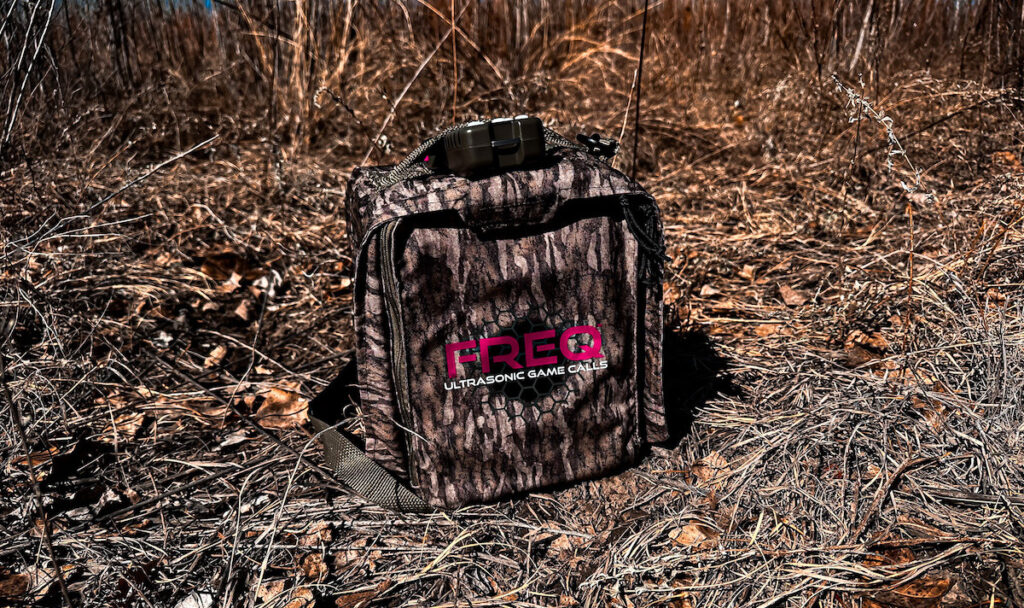
I know how skittish bobcats are. They are challenging to call in, especially when the sun is above the horizon. I couldn’t wait to see what the new e-caller was all about.
First Impressions
I always consider how a call travels with the hunter. I call on lots of open-to-anyone dirt. My walks from the vehicle to where I plan to call from are often a mile or more. Big, bulky, and heavy don’t work for me. I don’t want an e-caller that looks like a 1980s boom box.
The FREQ Ultrasonic Game Call comes in a protective camo with a zippered front door and a Velcro tab closure padded case. The case sports plenty of Molle straps, and I applaud the single top carry handle and shoulder strap.
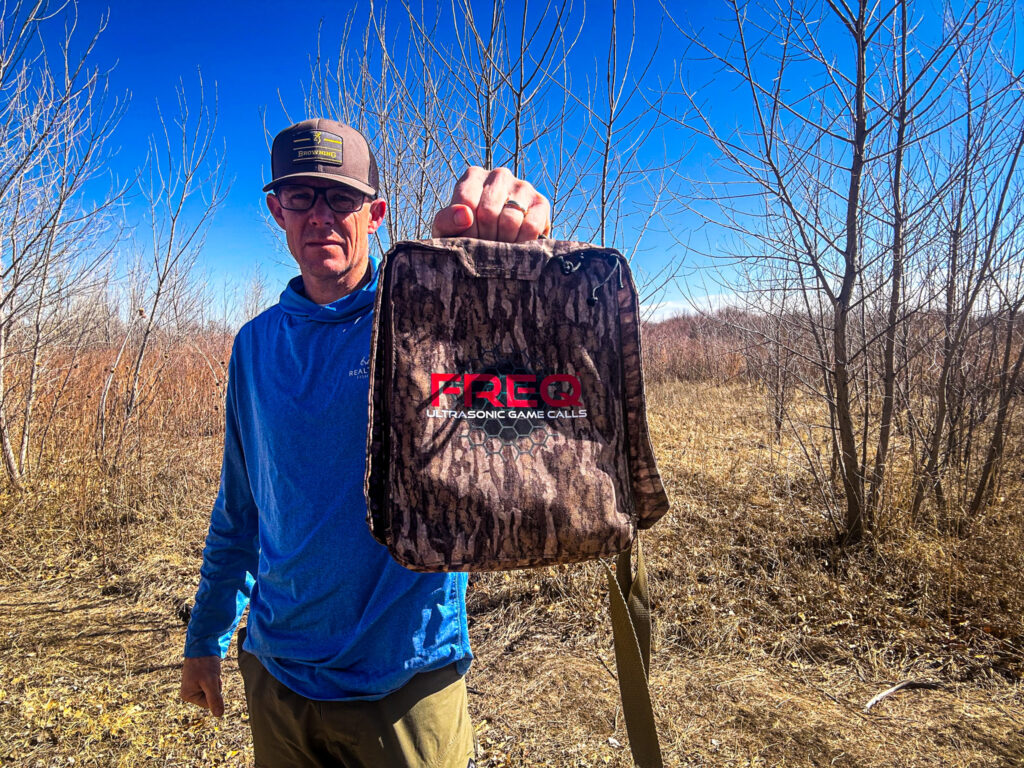
Best of all, it’s reasonably compact and extremely light for a unit claiming to produce top-end sound quality.
My unit arrived with a pair of rechargeable NiMh batteries. The unit only takes one, but a second is handy to have. The caller also sports a dual-screw open/close door that accepts six D-Cell batteries. I recommend adding the batteries as an extra backup. When both battery types are loaded and at full capacity, the e-caller defaults to the rechargeable battery first.
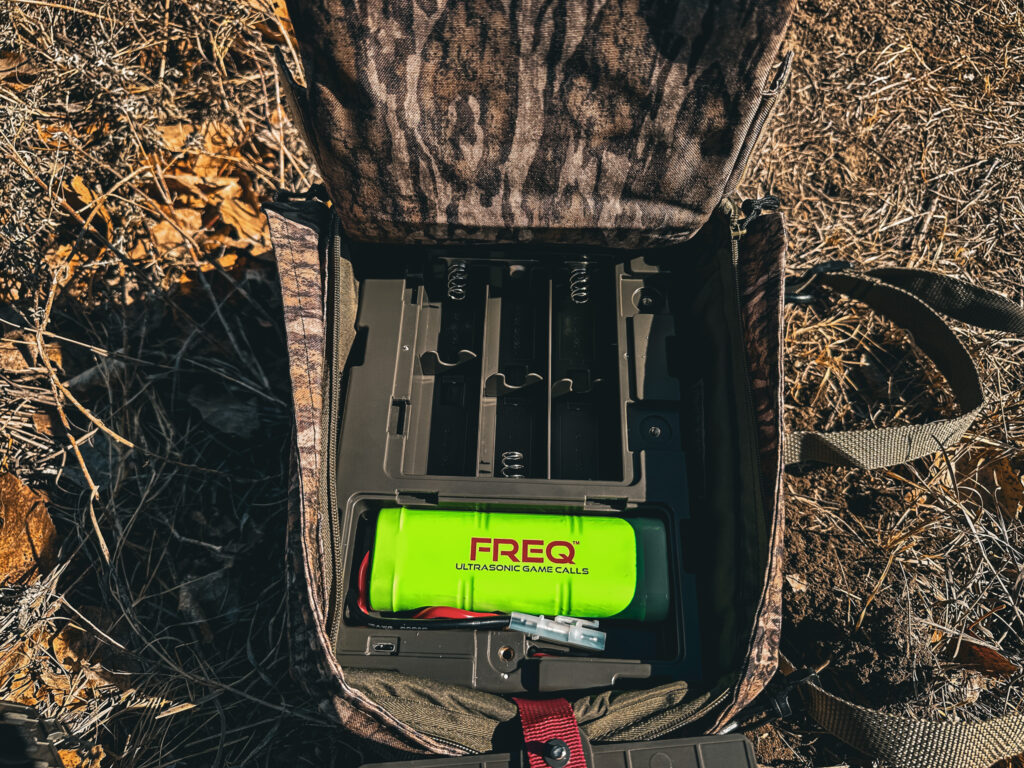
The FREQ Remote fits nicely into the hand. It’s not too big, but the LCD screen is large and clear. The red button on the call’s left side quickly changes the color of the LCD scree. This is an ultra-handy feature. All buttons are labeled, which is a win, and all are sizeable. The back compartment on the remote accepts three AA batteries.
The caller is rectangular, military green, and I was thrilled to see a single ON/OFF switch. The NiMh battery charged to full in 2 hours 39 minutes, and when I turned the unit on and pressed the red power button on the remote, the synch was immediate.
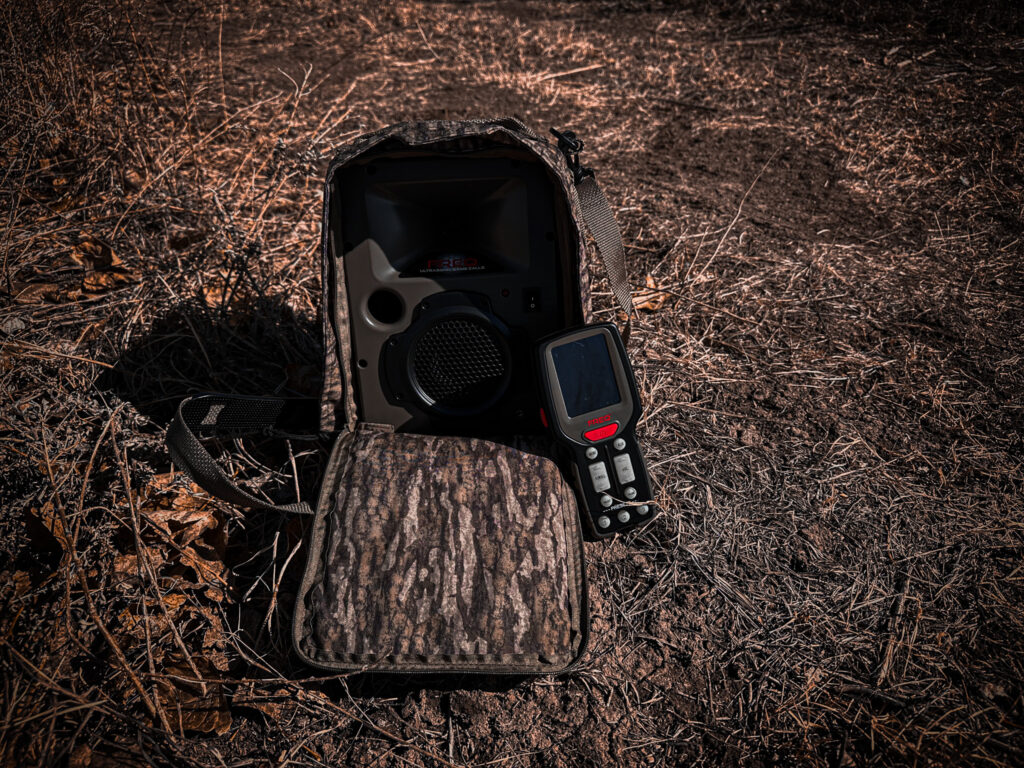
So far, so good.
Gotta Play With It
A mistake I made in my early e-caller days was not trying the unit at home before taking it to the field. Don’t be me. No matter what e-caller you opt for, learn its ins and outs before you go hunt with it.
The remote automatically goes to the sound category. Use the Scroll button to toggle through the sound categories, click on the category you want, and select the sound you want to play.
I love how easy the unit is to use. Upon finding the sound you want to use, press the Select button. The caller then quickly synchs to the sound and starts playing. Use the Pause button to stop the sound, and if you wish to select a different sound, use the Menu button.
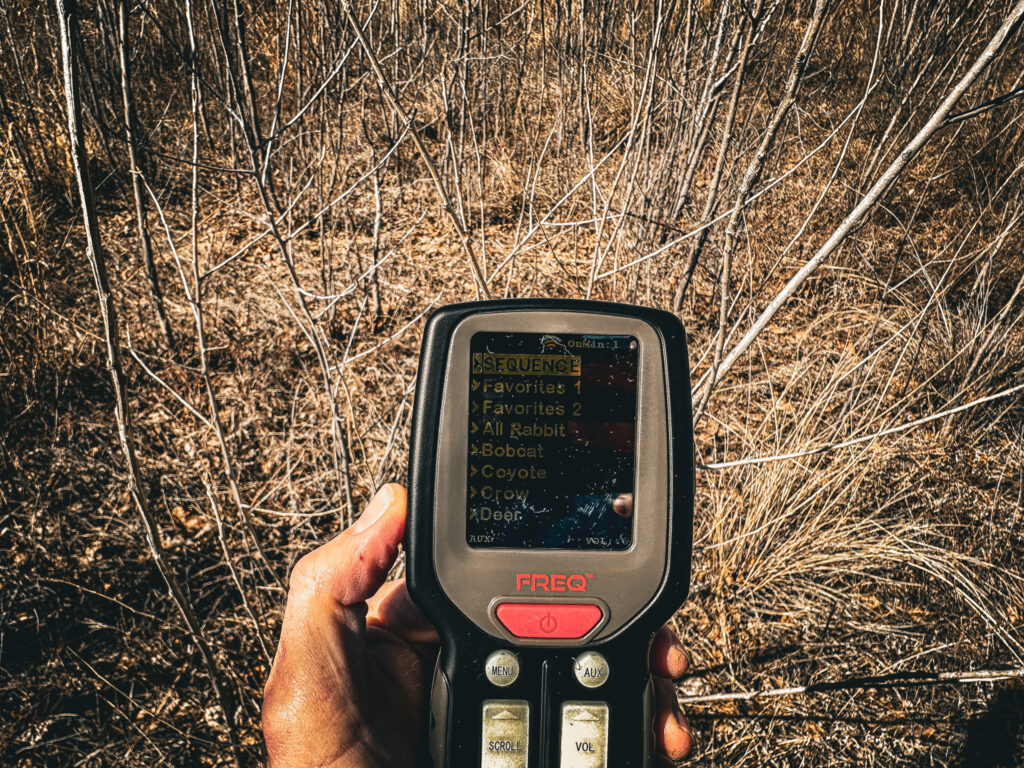
That’s a quick-start crash course, but truthfully, this call is ultra-simple to operate, and you could be out the door using it in coyote country in no time.
Before heading out with nothing more than a quick crash course, though, I recommend playing with the e-caller more. Setting up your Presets and Favorites will save time, and it is also necessary to learn how to keep an eye on your battery life.
From the Menu (using theMenu button), select Status/Battery.Here, you can see the charges of the remote and caller.
Next, scroll to Add/Delete Fav. Press the Select button, then press Add New Sound. Now, you can store your favorites in Favorites 1 or Favorites 2.
At the bottom of the controller is a trio of Presets. Presets are essential and give you quick options in the field. Typically, I do a pair of prey presets and one coyote sound.
Select the sound you want to set as a preset, and while the sound is playing, hold down one of the three Preset buttons. The synch takes about five seconds. Once you assign a sound to a button, you can access that sound anytime you hit the button it was assigned to.
The caller also comes with a USB-C port inside the battery compartment and a USB-C cable in the upper right-hand corner. Use this cable for updates and to download new sounds.
Lastly, the caller allows you to add sequences. This was something new to me, but after playing with the caller, I can see that it’s advantageous.
From the Menu, select Add/Edit Sequence. Next, choose #Sequence. Now, you can add up to 20 sounds per sequence, and set the duration, the pause time between sounds, and the volume level of each.
The Sound
The FREQ Ultrasonic Game Call sounds like no other call I’ve ever heard. It’s hard to describe the sound in words. Game-calling expert Gary Roberson put his decades of experience and knowledge into the call. You will see what I mean when you test drive it for yourself.
It is the world’s first full-spectrum electronic game call. It boasts a pair of unique True Cast speakers. One of the speakers produces a lower-frequency sound at the end of the spectrum. This is the sound most e-callers make. Humans and animals can hear this low-frequency sound. The second speaker creates a sound that humans cannot hear but one that animals can.
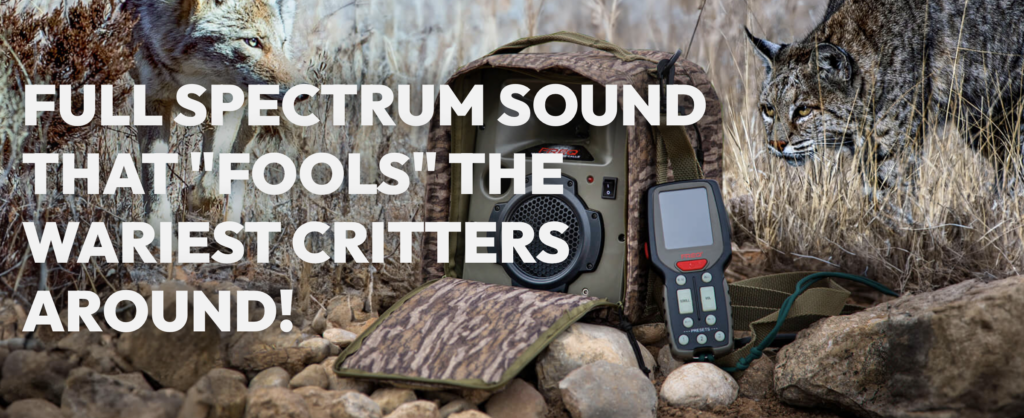
Most e-callers produce sound that reaches 12-18 kHz. The FREQ UltraSonic Game Call creates sound up to 50 kHz. These ultrasonic sounds are what animals hear and what they use to communicate silently. These sounds reach the ears of more predators, reduce hangups, trigger more aggressive responses, and boost your fur count.
Stay Tuned
I rarely pen so much ink about a product without giving it a total field test. However, this product got me so excited that I couldn’t wait.
February calling conditions in my neck of the woods have been impossible. Days of high winds followed by days with record-setting high temps aren’t fantastic for bringing mating-season dogs close.
To give the call its due, I want its maiden voyage to be when I know my regular e-callers would call dogs in. I want to create a solid comparison.
However, a few nights ago, my buddy, who lived exactly 1.47 miles from me, called. He said he had a bunch of coyotes going wild near his property.
For grins, I pulled out my go-to e-callers, cranked up the volume, and started calling. I called and used my iRay thermal scope for 45 minutes. I got no response to my howls and never saw a single coyote.
Two nights later, Bill called again. The crew of coyotes was getting vocal. I took the FREQ Ultrasonic to my back acre, set it up, and cranked the volume. After 22 minutes, I heard a challenge howl. I triggered the Yote Challenge on the remote, and two minutes later, two coyotes were in range. Sadly, a row of farmhouses sits behind my property, so I couldn’t shoot. However, I can’t wait to get this beauty into the woods soon for a full field test.
Please be sure to stay tuned. This article will be linked to the complete field test article that is to come.
